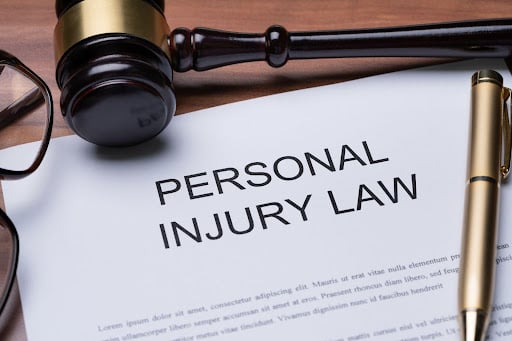
Personal injury law is the legal field that deals with cases in which one party causes another to suffer an injury due to negligence. It is well known as tort law. The main goal of this personal injury law is to provide relief to people who have sustained injuries as the result of another individual’s action. If anyone is severely injured in an accident, they may have questions about their legal rights and filing a personal injury lawsuit.
In this article, we are going to discuss the basics of personal injury laws. Understanding the basics of personal injury law is important to ensuring that you get the compensation you deserve.
Table of Contents
- Introduction
- What is personal injury law?
- The basics of personal injury law
- Key elements of personal injury law
- Damages in personal injury law
What is Personal Injury Law?
Personal injury law covers a wide range of legal claims that arise when a person is injured as a result of the negligence, recklessness, or willful actions of other individuals or entities. Some of the most common types of personal injury claims are
- Medical malpractice
- Slip and fall accidents
- Car accidents
The main purpose of personal injury law is to ensure that victims receive adequate compensation for their injuries, damages, and losses. This compensation covers costs such as
- Lost income
- Medical bills
- Pain and suffering
- Property damage
- Other damages related to the injury
The Basics of Personal Injury
Personal injury law covers various scenarios where a person is injured or harmed by another party:
Accidents: Personal injury law applies in situations where anyone acts negligently and that carelessness causes injury to another individual.
Defamation: If an individual makes a defamatory statement that causes harm to another person, then the injured person can use personal injury law to sue the at-fault party.
Defective Products: If a medical device, consumer product, vehicle component, or product is defective or unknowingly harmful and causes an injury, the victim can file a product liability case against the manufacturer or seller of the product.
Intentional Acts: Personal injury laws apply in circumstances where the intentional activity of the defendant causes harm to another person. Examples of intention acts are assault and battery.
Elements of a Personal Injury Law
The victim should prove the elements below to win a personal injury claim.
Duty of Care
The defendant (the person or entity liable for the harm) should have had a legal obligation to take reasonable care to prevent harming the plaintiff (victim).
Breach of Duty of Care
The defendant should have breached this duty of care, either by acting recklessly, negligently, or by intentionally causing injury to the plaintiff.
Causation
The defendant’s breach of duty of care should have directly caused the plaintiff’s injuries.
Damages
The plaintiff should have sustained actual damages, such as pain and suffering, medical expenses, lost earnings, or other losses due to the injury.
Damages in Personal Injury Law
Damages refer to the sum of money that victims can recover from a person or entity for their negligence or wrongdoing. It is necessary to understand the types of damages available to make sure you get fair compensation.
The following are the types of damages in personal injury law:
Economic Damages
These damages are also known as special damages. These are the monetary losses the victims experience due to the accident. Economic damages are comparatively easy to calculate. The following losses fall under economic damages:
- Medical expenses
- Lost wages and expected future lost wages
- Property damage
- Rehabilitation expenses
- Out-of-pocket expenses
- Funeral expenses
Non-Economic Damages
These damages are also known as general damages. Non-economic losses are harder to calculate as they are intangible. In addition to the physical pain and suffering the victim suffers due to the accident, the following losses are categorized under non-economic damages:
- Emotional distress
- Loss of consortium
- Loss of enjoyment of life
- Disfigurement
Punitive Damages
Punitive damages are awarded to punish defendants who acted in a violent, malicious, or reckless manner. They are rare and are only awarded in court. This means that you cannot claim punitive damages in an out-of-court settlement.
Final Thoughts
We believe our article has helped you get a better understanding of the basic concepts of personal injury law. It is advisable to consult with an experienced attorney who can assist in getting compensation for those injured by the negligence of others.
Interesting Related Article: “The Symbiotic Relationship: Private Equity Firms and Personal Injury Law Firms“
------------Read More
By: Stephanie Ross
Title: Understanding the Basics of Personal Injury Law
Sourced From: marketbusinessnews.com/understanding-the-basics-of-personal-injury-law/352321/
Published Date: Wed, 18 Oct 2023 17:27:46 +0000
Did you miss our previous article...
https://trendinginbusiness.business/business/a-palestinian-fatherof6-says-his-youngest-kids-would-scream-and-cry-when-they-first-heard-bombs-but-now-theyre-numb-and-sit-in-the-corner-instead-of-playing
.png)





